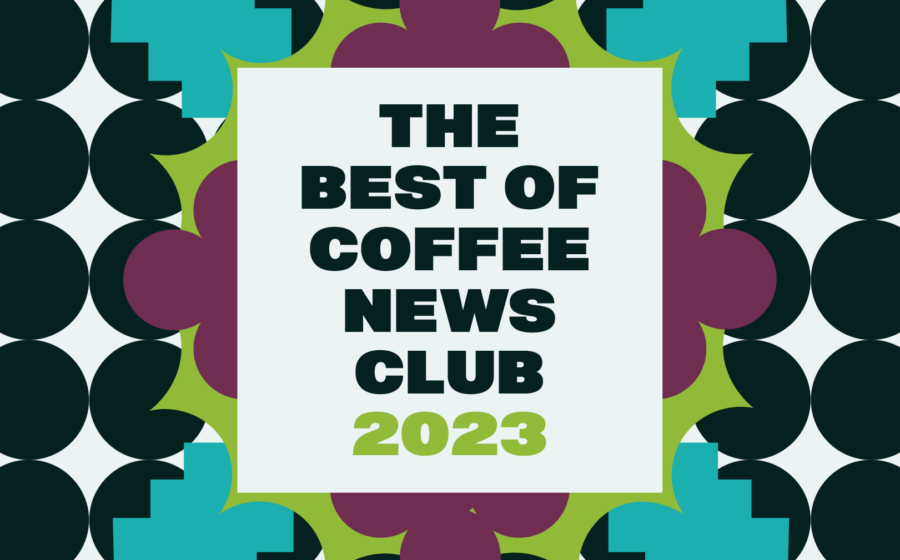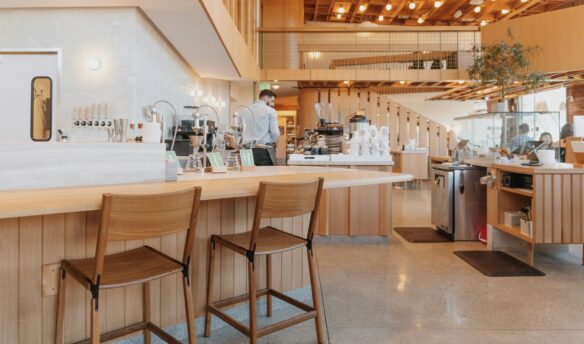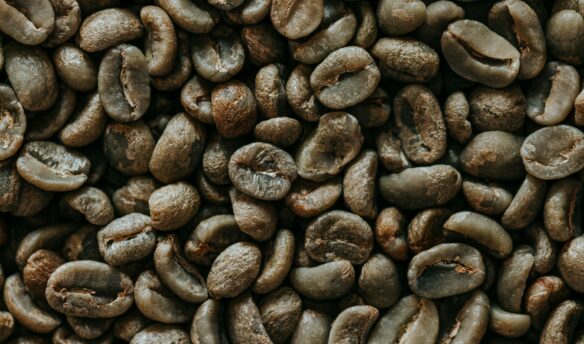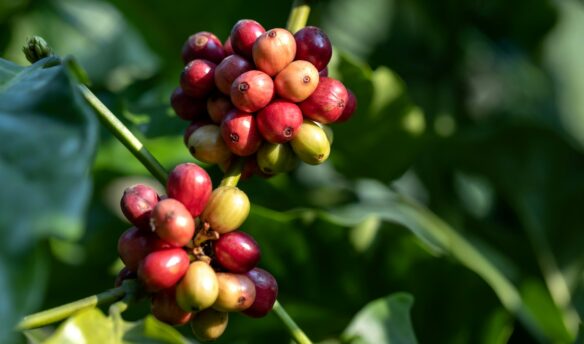A tumultuous year for coffee farmers, a big one for acquisitions, and varying degrees of success in the coffee labor movement: welcome to the Fresh Cup 2023 Year in Review.
The Year in Coffee
Coffee in 2023 had a few main storylines with overarching themes, the occasional callback, and some odd subplots.
Like almost every year, there were a slew of acquisitions in the specialty sector and beyond. Midwestern private equity-backed FairWave bought Milwaukee’s Anodyne Coffee and invested in Minnesota-based Folly Coffee and Philtera Cold Brewed Coffees to add to its growing roster of specialty coffee companies. Meanwhile, La Colombe received a massive investment from Keurig Dr Pepper, only to be purchased outright by Chobani later in the year. Westrock Coffee acquired Bixby Roasting Co to “appeal to younger US consumers by tapping into Bixby’s influencer-endorsed specialty coffee brands.”
Acquisitions weren’t reserved solely for roasters and cafes: green coffee giant Sucafina purchased progressive trader Sustainable Harvest, while Neumann Kaffee Gruppe bought much-lauded specialty importer Nordic Approach to continue the coffee industry’s increasing shift towards consolidation.
Speaking of green coffee, 2023 brought another year of turmoil for farmers and fluctuations in the commodity market. In the summer, government reforms in Kenya shut down the Nairobi Coffee Exchange for over a month, causing confusion and worry for the country’s growers. In December, coffee trader Mercon filed for bankruptcy, meaning that Nicaragua’s largest exporter, Mercon subsidiary CISA Exportadora, also shut down, leaving producers frustrated and unsure of what would come.
Fairtrade International made headlines in April when it announced a sweeping price rise for certified arabica and robusta coffee. In contrast, Fairtrade USA—a different organization—announced a “price freeze” on coffee after consultation with hundreds of industry stakeholders. Fairtrade USA said most of those they consulted with on the consumer side were against a price rise because it would “significantly lower demand and volume over the next 12-24 months, reducing overall producer impact.”
Depending on who you believe, coffee’s future is either very bright or faces peril in 2024 and beyond. The National Coffee Association was bullish, with its latest report showing that US consumers spend $301 million daily on coffee. On the other hand, the 2023 Coffee Barometer noted that “while the sector’s total economic value has significantly increased, the benefits seem to be disproportionately concentrated in Europe and North America,” and World Coffee Research warned of an “innovation crisis” due to a severe lack of funding for research.
Another story arc throughout the year was overseas growth: from Tim Hortons opening in Pakistan and Singapore to Chinese chains like Cotti Coffee and Luckin Coffee expanding their footprints internationally. Starbucks remains the largest brand in Asia, but Luckin surpassed the Seattle-based giant in total number of stores in China. This year, China also overtook the US as the branded coffee capital of the world. Coffee producers increasingly recognize China’s importance as a coffee-consuming country, as evidenced by a substantial rise in green imports in 2023.
A long-running coffee subplot continued in 2023 as more celebrities joined the industry: The Weeknd teamed up with Blue Bottle to celebrate his Ethiopian heritage in coffee form, while Neil Patrick Harris served as the spokesperson for a canned espresso martini (about two years too late) and Millie Bobby Brown launched a coffee offshoot of her beauty products brand. Snoop Dogg got involved, too, joining forces with an Indonesian coffee entrepreneur to start a coffee brand called INDOxyz, only to walk away from the venture just a few months later.
Coffee and the Climate Crisis
Another year in which changing weather patterns impacted coffee harvests. From Kenya to Hawaii, Brazil to India, farmers are already facing the effects of climate change while the world’s biggest roasters work on can-kicking plans to reach net zero by 2050.
2023 wasn’t a great year for insects—and, by extension, the coffee they help pollinate. Research from the University of Cambridge found that climate change and habitat loss kill insect pollinators in the tropics. Another study reported that climate events like droughts and frosts, which reduce coffee yields, have become more frequent over the past 40 years. As global warming pushes temperatures higher, these “ongoing systemic shocks” will continue to affect both arabica and robusta coffee production.
Loss of forest land is a significant driver of the climate crisis. To discourage actions that lead to deforestation, the European Union introduced new legislation at the end of 2022 to punish companies that import commodities linked to deforestation, like coffee. While the legislative efforts were widely lauded as a critical step in the fight against climate change, the law was also criticized for how it might impact smallholder farmers.
To sum things up, the latest report from the Coffee Barometer had some strong words for the industry as a whole: “Amidst the grand claims of sustainability and rosy promises of a prosperous future in coffee agriculture,” the authors wrote, “the harsh reality faced by coffee producers is marked by price volatility and rising production costs due to higher prices for fertilizers and labor. Coupled with rampant inflation and the profound consequences of a rapidly changing climate in the most vulnerable origins, the coffee sector finds itself immersed in a state of crisis.”
The Year in Coffee Unionizing
The dominant story of the year was the ongoing unionization battle at Starbucks. More than 370 stores have voted to unionize, and Starbucks has been a stubborn foe, refusing to bargain unless under very specific terms. No Starbucks store has agreed on a contract, and the megachain continues to be hit with one unfair labor practice charge after another from the National Labor Relations Board. Students at multiple colleges fought to remove Starbucks from their campuses, and there was a potential thawing of hostilities in December when the company promised to resume contract negotiations in 2024. However, many observers remain skeptical.
Starbucks Workers United staged several strikes this year, including a week-long action in June to protest the company’s removal of Pride decorations. The biggest strike happened in November when workers at over 200 stores walked out on Red Cup Day, the start of Starbucks’ holiday season and its busiest day of the year. In April, former CEO Howard Schultz testified before the Senate in a hearing called “No Company is Above the Law: The Need to End Illegal Union Busting at Starbucks,” garnering support from Republican legislators and getting angry when he was called a billionaire.
In contrast to Starbucks, multiple specialty coffee companies agreed on union contracts with their workers. The biggest came at Colectivo Coffee: three years after beginning their union drive, the company’s 600 workers ratified their first contract. In Louisville, workers at Sunergos Coffee also agreed on a contract after a seven-day strike. Meanwhile, two Philadelphia coffee companies agreed on contracts, albeit both under threat of strike action.
Unionized workers at a Nestlé coffee facility in a small New Jersey town fought to keep their plant open, saying its closure would “deeply impact workers and the local community.” Despite the protests, the company eventually shut it down and moved production to Mexico.
Workers at several prominent specialty coffee companies filed for unionization, from La Colombe in Chicago and Los Angeles to Go Get Em Tiger, also in Los Angeles. The La Colombe union drive had immediate results, with all workers receiving wage increases and a $500 bonus.
And corporate coffee union drives weren’t just reserved for Starbucks: workers at Peet’s voted to unionize, and Dunkin’ employees in Cincinnati and Philadelphia filed for union elections—although there have been no updates since the filings in August.
The Year in Corporate Coffeewashing
2023 was another year marked with significant instances of coffeewashing, or companies proudly touting sustainability initiatives with minimal or no discernible environmental impact.
Nespresso was at the head of the line, unveiling a $24,000 watch made from (a tiny amount of) recycled coffee grounds and aluminum. The company also utilized spokesperson George Clooney and French actors Jean Dujardin and Camille Cottin to trumpet the launch of its compostable coffee pods. Nespresso’s parent company, Nestlé, announced it was working on cutting water usage at its Australian plant by 20%—this is the same company long alleged to extract water from drought-stricken communities to bottle and sell for a profit.
Another Nestlé subsidiary, Blue Bottle Coffee, quietly shelved its zero-waste plan while separately announcing its road to carbon neutrality by 2024, something it will do through carbon offsets. Big companies like Nespresso, Starbucks, Keurig Green Mountain, and Peet’s have used carbon offsets. However, as a Guardian investigation found in January, many carbon offset schemes (including one used by Lavazza) are basically worthless.
Big coffee companies also made pledges to fund coffee research, but this year, it felt like the amount these companies pledged was disproportionate to how much profit they rake in. Keurig Dr Pepper is partnering with the Coffee Science Foundation for a study aiming to “illuminate learnings about the most effective ways to improve coffee farmer prosperity.” This is from a company with sales of more than $14 billion in 2022, and, as we noted at the time, the answer seems simple: pay farmers more.
Similarly, the Global Coffee Platform received $1.5 million in funding from various coffee companies to “launch …a new era of collective action in coffee sustainability.” JDE Peet’s (2022 revenue: $7.5 billion) and Nespresso ($6.9 billion) were among the funders. This news came out the same week as World Coffee Research’s funding gap warning.
Was Coffee Good For You in 2023?
Like every year, the answer to the question, “Is coffee good for you?” in 2023 is yes—most of the time.
Scientists love to investigate coffee’s health effects, publishing a new study almost every week in 2023, and most were positive. Among many other discoveries, researchers found that high blood caffeine levels might help lower your risk of type 2 diabetes. For those with the disease, drinking coffee might reduce the risk of premature death by upwards of 26%.
Researchers found even more health benefits: coffee drinkers might be significantly less likely to develop multiple sclerosis; compounds extracted from coffee waste contain antimicrobial and antibacterial properties; drinking coffee could help lower your risk of developing irritable bowel syndrome (more than one study found this); and there was more evidence that coffee can reduce the infection risk of SARS-CoV-2, the virus that causes COVID-19.
That’s the body, but what about the mind? One study found that coffee could help keep your brain healthy; another discovered that a specific plant alkaloid found in coffee could help with memory as we age, while espresso compounds could inhibit a process thought to be involved in the onset of Alzheimer’s. It wasn’t all good news, however, as a (admittedly inconclusive) study from Harvard found that coffee might be linked to a long-term decrease in happiness and well-being.
This inconclusive theme ran through the year (in general, it’s a good idea to take all coffee health studies with a pinch of salt). There were conflicting studies about the effect of coffee on kidney health and blood pressure, while another study reexamined coffee and atrial fibrillation, a common abnormal heart rhythm or arrhythmia. Most research has found coffee to be actively beneficial, but according to a study published in May, that’s because much of the previous work focused solely on white populations.
Another notable aspect of all these coffee health stories is their overwhelming focus on coffee drinkers. One study looked at the impact of pesticides used in coffee production on agricultural workers and the environment and found that, unsurprisingly, it’s not good. The researchers also recommended alternative pest control methods, from agroforestry to biological controls, such as beneficial insects.
At least there was finally some good news for those who enjoy visiting the condiment station. One Danish study found that adding milk to coffee doubles its anti-inflammatory effects. At the same time, another study concluded that a bit of sugar in your morning coffee isn’t the worst thing you can do. And both the National Coffee Association and the American Heart Association are encouraging the FDA to add coffee to the list of foods officially labeled “healthy.”
On the Lighter Side
The news wasn’t all so dire. Perhaps one of the wildest stories of the year involved bees who love Dutch Bros syrups, causing a notable bee problem at dozens of stores. Another story involved a startup that wants to “disrupt” the coffee industry with a device that sprays caffeine directly onto your tongue. Peet’s provided several lighter news stories, such as when they advertised for a “chief cold brew officer” who would be paid in iced coffee or when they launched a “disloyalty program” promotion with the explicit goal of stealing customers from other chains.
We can’t wait to see what 2024 brings. Thanks for reading the newsletter.
















